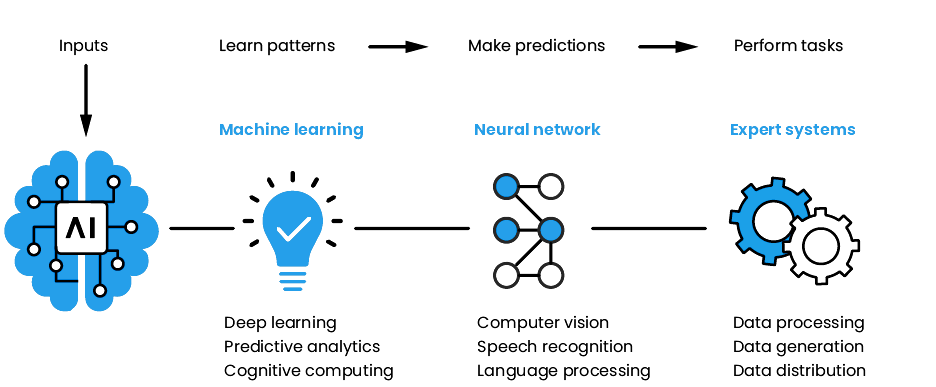Artificial Intelligence (AI) has transitioned from a realm of theoretical exploration to a foundational component of contemporary society. Its pervasive influence is evident across industries and daily life, underscoring its enduring significance.
Understanding AI
AI encompasses a diverse range of technologies designed to simulate human intelligence. Key subfields include:
- Machine Learning: Algorithms capable of learning from data without explicit programming.
- Deep Learning: A subset of machine learning inspired by the human brain's neural networks.
- Natural Language Processing (NLP): The ability of computers to understand, interpret, and generate human language.
- Computer Vision: The technology enabling computers to interpret and comprehend visual information.
The Universality of AI
The integration of AI into various facets of life is profound. Examples include:
- Industry: Automation, predictive analytics, and quality control.
- Healthcare: Diagnosis, drug discovery, and personalized medicine.
- Finance: Fraud detection, algorithmic trading, and risk assessment.
- Customer Service: Chatbots, virtual assistants, and personalized recommendations.
- Transportation: Autonomous vehicles, traffic management, and logistics optimization
The Future of AI
The potential applications of AI are vast and continually evolving. Anticipated developments include:
- Scientific Advancement: Accelerating research through data analysis and pattern recognition.
- Environmental Sustainability: Optimizing resource management and developing climate solutions.
- Education: Personalized learning experiences and intelligent tutoring systems.
Challenges and Considerations
While AI offers immense promise, it also presents challenges. Issues such as data privacy, job displacement, and algorithmic bias necessitate careful consideration. Responsible AI development and deployment are crucial for maximizing benefits while mitigating risks.
AI is undeniably a transformative force with the potential to reshape industries, economies, and societies. By understanding its capabilities and limitations, stakeholders can harness its power to create a future characterized by innovation, efficiency, and human well-being.
